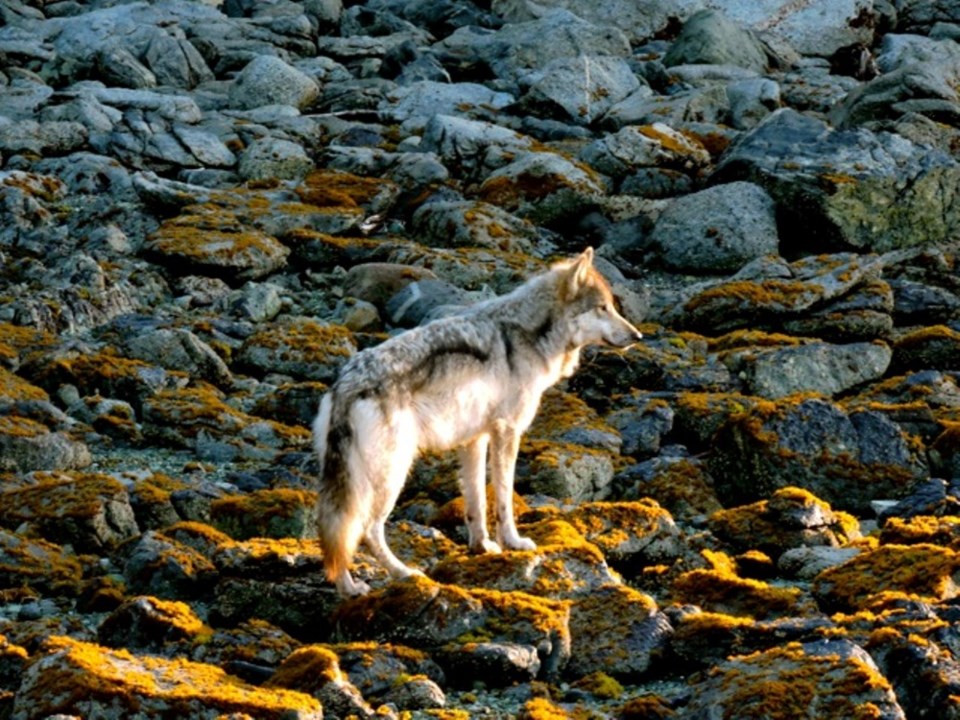Royal Roads University is warning that wolves have been seen and heard lately on the institution’s Colwood campus.
On Monday, the university advised keeping children within arm’s reach and dogs on leashes on the 229-hectare property, which is home to Hatley Castle and contains several gardens and wooded walking trails that are open to the public.
Conservation officer Scott Norris said the B.C. Conservation Officer Service hasn’t confirmed any sightings on the campus, but wolf numbers are strong on Vancouver Island.
The Ministry of Forests estimates there are about 250, of which about 70 per cent are on the north Island, according to Nanaimo’s Swell Wolf Education Centre.
“You think about coastal wolves, the population is pretty good further up-Island, all along the coast,” Norris said. “Our Island wolves are quite adept at fishing for seafood but they do roam all across the interior of the Island.”
He said wolves are seen from time to time in the Cowichan Valley, from Mill Bay, to north Duncan.
“Wolves can be opportunistic, so they’re going to be moving around where the food is, so they’re going to roam.”
The amount of territory covered by a pack looking for food can be huge, and they can pose a danger to livestock, Norris said.
Norris said wolves are usually shy animals.
“They keep to themselves as much as they can.”
A wolf was spotted last January near Metchosin’s William Head Institution eating a seal pup.
More recently, a wolf attacked a small dog in Sooke in January. Conservation officers responded to the incident on the Broom Hill Loop trail, where the dog was grabbed by the wolf and then scared off by the owner.
Sam Webb, president of the Wild Wise Society — a wildlife-education group — said at the time it was the first wolf-on-dog attack her organization was aware of. But she said some parks on the mainland and north Island have been closed because of the amount of wolf-dog interaction.
There are two wolf packs in the capital region — in East Sooke and the Sooke Hills.
Norris said anyone encountering a wolf should give it lots of room and back away slowly.
It can also help to make yourself look as big as possible, wave your arms or shout. Don’t run or turn your back, says the Environment Ministry.
When wolves show aggressive behaviour toward humans, it’s usually because they’re being fed, the ministry says.
While wolves are not a common sight at Royal Roads, other species can be, said Cheryl Eason, the university’s chief financial officer.
“Within the campus’ old-growth forest you might spot cougars year-round or black bears most summers,” Eason said in a statement.



